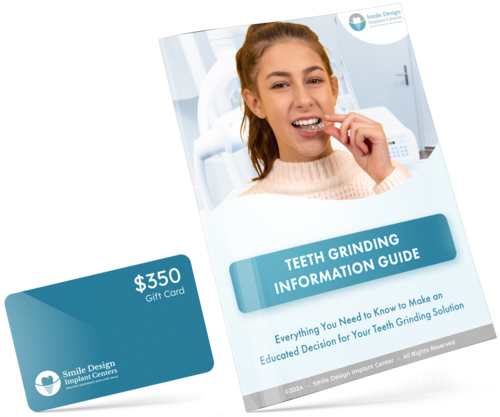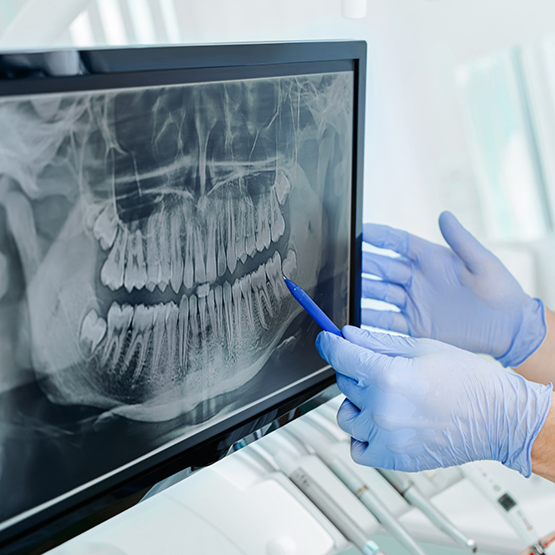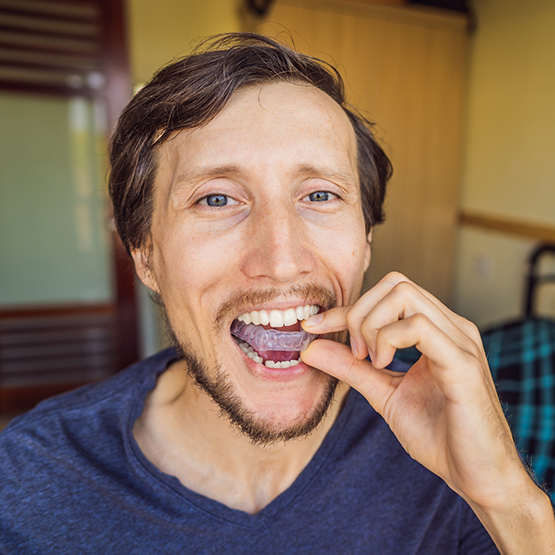Chronic teeth grinding, also known as bruxism, is a condition in which the jaw is placed under stress. This stress can cause the jaw to clench and grind against the teeth. Bruxism causes wear on the teeth as well as pain in the jaw and facial muscles. Other symptoms include earaches, headaches, and sore and sensitive teeth.
Bruxism is commonly caused when the top and bottom rows of teeth are unable to meet properly, although it can also occur due to stress, jaw injuries, and other underlying issues. This could be due to problems with the alignment of the bite or the shape and structure of the jaw and skull. A misaligned bite can cause the teeth to grind against each other in an attempt to find the proper alignment. This constant motion can wear down and destroy tooth enamel. Over time, it can cause severe damage to both the structure of the teeth and the health of surrounding tissues, such as the gums.
In some cases, an orthodontist can be able to provide a simple treatment to help correct the alignment of the bite. For example, a retainer can be used to prevent the upper and lower jaws from shifting back into their proper positions during sleep. Orthodontists are also capable of conducting a thorough evaluation to determine if a more invasive surgical procedure is required to correct the distortion. Options for teeth grinding treatment in Reno may include adjusting the position of the maxillary bones by means of orthodontic treatment, oral surgery, or both.




